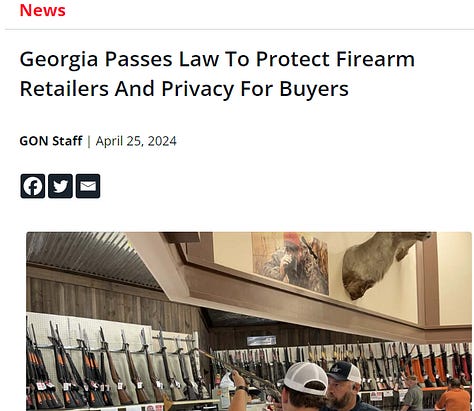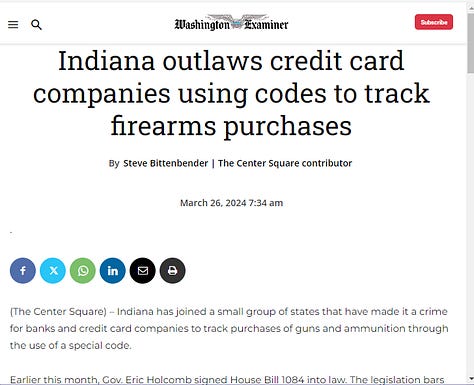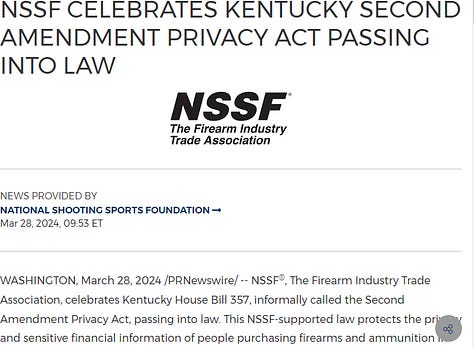Privacy and the Second Amendment
A look at new U.S. state laws designed to protect the privacy of lawful firearm purchases
A number of U.S. states have recently passed laws that prohibit financial institutions from tracking the purchase of firearms and related items (e.g. ammunition) by law abiding citizens. Though implemented to address concerns over the tracking of firearm purchases, these laws are, at their core, consumer privacy protections that enhance individual privacy.



Welcome to another issue of Secrets of Privacy where we discuss personal privacy related topics and provide practical tips to immediately shield your personal privacy.
If you’re reading this but haven’t yet signed up, join the growing Secrets of Privacy community for free and get our newsletter delivered to your inbox by subscribing here 👇
Summary of the Laws
The specifics of these laws vary from state to state. However, there are some key components that are generally common among the various state laws:
Payment processors may not create or use a merchant category code (MCC) for gun-related transactions at stores that sell firearms.
Payment processors can’t classify firearms retailers separately from general merchandise retailers.
Payment processors cannot decline or refuse to process a lawful payment for a firearms purchase (except in limited circumstances).
Violations of the law can result in fines on a per violation basis.
Government agencies are prohibited from keeping a firearms registry except for criminal investigations.
States that Have Enacted Second Amendment Privacy Laws
Kentucky
Wyoming
Indiana
Utah
Florida
Idaho
Mississippi
Montana
North Dakota
Texas
West Virginia
Tennessee
Georgia
How Did We Get Here?
Keep reading with a 7-day free trial
Subscribe to Secrets of Privacy to keep reading this post and get 7 days of free access to the full post archives.


